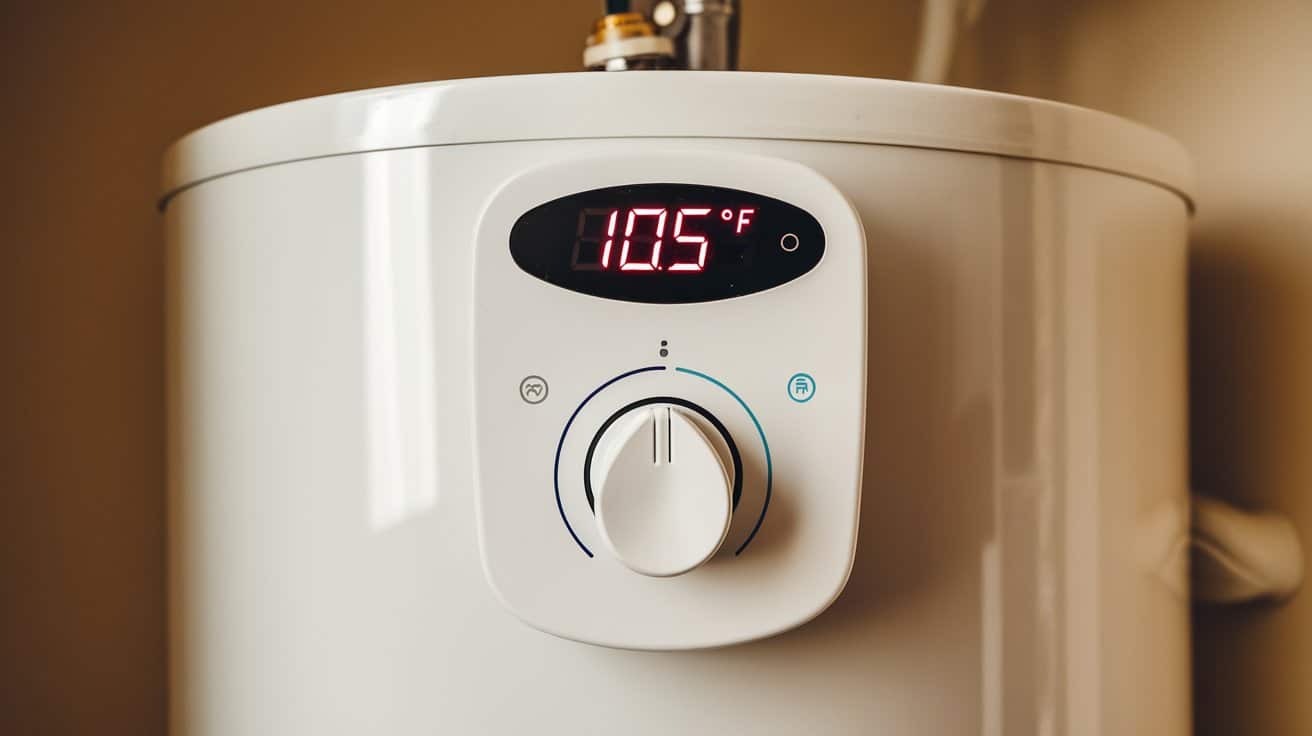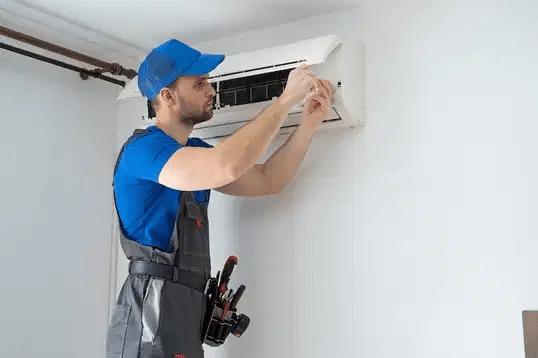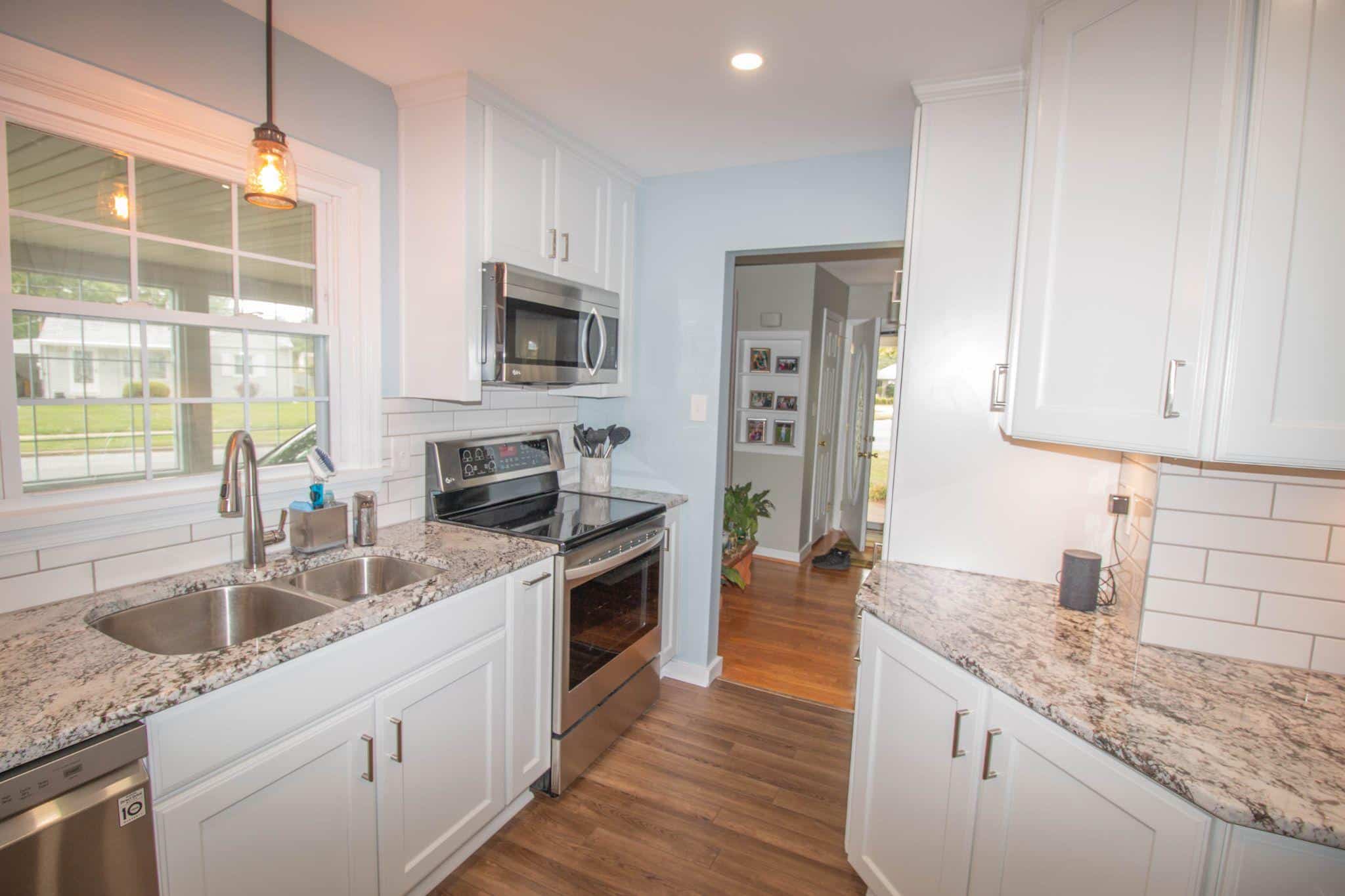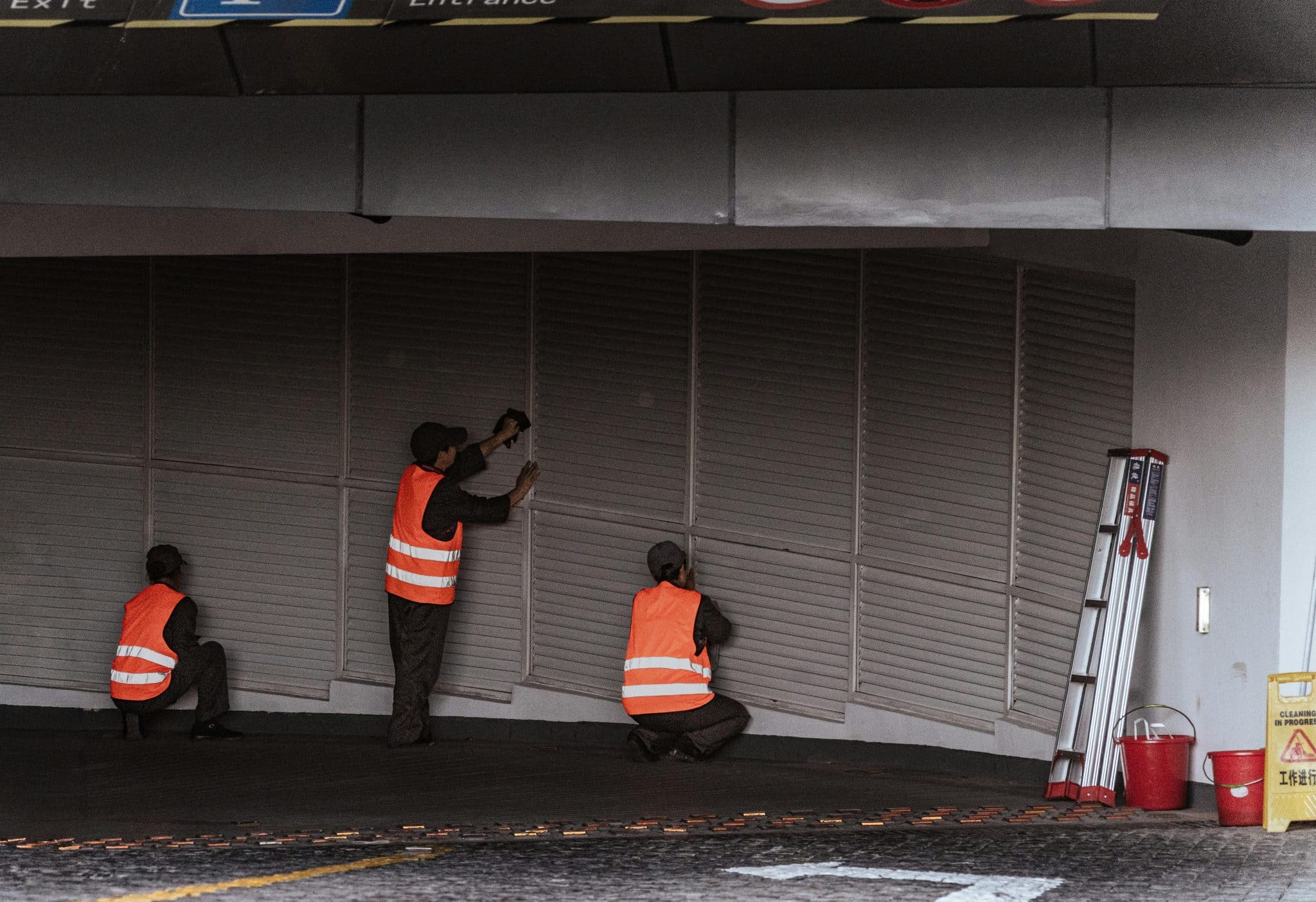Thinking about getting an electric tankless water heater? You need to know what others have actually felt using them.
You need to know real insights about their performance, reliability, and whether they live up to the promises. Plus, you need to see how they stack up against other water heating options.
Here’s what you’ll get: what users love and hate, detailed comparisons with other tankless units, and all the major factors that impact your decision.
I’ll cover the real costs, installation requirements, and maintenance needs, and help you figure out if they’re the right fit for your home and budget.
You’ll have everything needed to make a smart choice about electric tankless water heaters.
What Are Electric Tankless Water Heaters?
Electric tankless water heaters are compact units that heat water instantly when you turn on a tap. Unlike traditional water heaters with large storage tanks, these units don’t store hot water.
They only heat water as it flows through the system. The key difference is simple: no tank means no standby heat loss. Traditional heaters constantly warm stored water, even when you’re not using it.
These units are much smaller than tank heaters. Most mount on walls and take up minimal space. They can fit in closets, basements, or even under sinks.
The compact size makes them popular for small homes, apartments, and tight spaces. You won’t need a dedicated utility room like you do with traditional tank heaters.
How Electric Tankless Water Heaters Work?
When you turn on a hot water tap, cold water flows into the unit through an inlet pipe. A flow sensor detects this movement and signals the heating elements to turn on instantly.
The cold water passes through electric heating coils inside the unit. These coils heat up fast and warm the water as it flows through. Most units have multiple heating elements that work together to reach your desired temperature.
A computer chip controls the whole process. It monitors water flow rate and inlet temperature, then adjusts the heating elements to maintain a consistent hot water output. This happens in seconds.
The heated water then flows directly to your faucet or shower. When you turn off the tap, the flow sensor stops the heating elements immediately. No energy gets wasted heating stored water like traditional tanks do.
Pros and Cons of Electric Tankless Water Heater
I always tell homeowners to weigh both sides before making this investment. Electric tankless heaters have clear benefits, but they also come with some limitations you should know about.
| Pros | Cons |
|---|---|
| Space Saving: Takes up 90% less space than tank heaters | High Upfront Cost: Units cost $500-$1,500 plus installation |
| Lower Energy Bills: Only heats water when needed | Limited Flow Rate: May struggle with multiple simultaneous uses |
| Longer Lifespan: Lasts 15-20 years vs. 8-12 for tanks | Electrical Requirements: Needs dedicated 240V circuits |
| Consistent Temperature: Never runs out of hot water | Slower Heating: Takes longer to reach faucets than gas models |
| No Standby Losses: Zero energy waste when not in use | Cold Water Sandwich: Brief temperature drops between uses |
| Easy Maintenance: Fewer moving parts to break down | Installation Complexity: Often requires electrical upgrades |
What People Like v/s. Dislike
After speaking with hundreds of homeowners who have made the switch, I’ve noticed some clear patterns in their feedback. Here’s what real users actually say about living with electric tankless heaters.
What People Love Most
Instant Hot Water: Users consistently mention never running out during long showers. Families with teenagers, in particular, appreciate this benefit.
Lower Monthly Bills: Most customers see a 20-30% drop in their water heating costs. One customer told me her electric bill dropped $40 per month after switching.
Extra Storage Space: Homeowners love reclaiming their utility room space. Many convert the old tank area into storage or laundry space.
What Frustrates Users
Slower Initial Flow: People complain about waiting longer for hot water to reach distant faucets. This delay can be up to 30-60 seconds longer than expected.
Electrical Work Costs: Many underestimate installation expenses. Upgrading electrical panels can add $1,000-$2,000 to total costs.
Performance During Peak Use: Families notice temperature drops when running dishwashers and showers simultaneously.
Comparing Electric Tankless vs. Gas Tankless Heaters
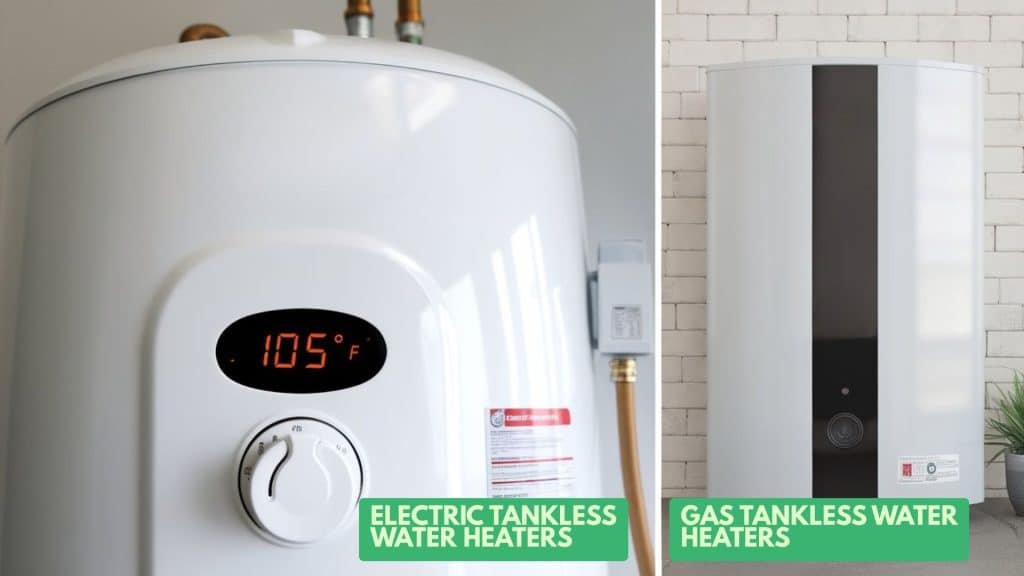
I get this question all the time: “Should I go electric or gas?” Both have their place, but the right choice depends on your home’s setup and family needs.
| Feature | Electric Tankless | Gas Tankless |
|---|---|---|
| Flow Rate | 2-5 gallons per minute | 5-10 gallons per minute |
| Heating Speed | Slower initial heating | Faster temperature rise |
| Installation Complexity | Simpler, no venting needed | Complex venting requirements |
| Space Requirements | Very compact | Larger due to venting |
| Maintenance Needs | Minimal annual care | Regular professional servicing |
| Lifespan | 15-20 years | 12-15 years |
| Performance in Cold Weather | Consistent year-round | May struggle in extreme cold |
| Environmental Impact | Depends on the local power grid | Direct fossil fuel combustion |
| Availability | Works anywhere with electricity | Needs existing gas lines |
| Best For | Small homes, apartments | Large families, high demand |
Cost Analysis: Upfront, Operating, and Maintenance
Money matters when choosing any major home appliance. I’ve broken down the real costs you’ll face with electric tankless heaters so you can budget properly.
Upfront Costs
The unit itself runs $500-$1,500, depending on size and features. But don’t stop there. Installation adds $1,200-$3,000 to your total bill.
Here’s what drives up installation costs: Most homes need electrical upgrades. Your current panel might not handle the 240V circuits these units require. Electricians charge $800-$2,000 for panel upgrades.
Permits and inspections add another $100-$300 if you’re replacing a tank heater, and factor in removal costs of $200-$400.
Operating Costs
Electric tankless heaters cost more to run than gas models in most areas. I typically see monthly bills increase $20-$50 compared to gas units.
However, they’re still cheaper than old electric tank heaters. Most homeowners save $15-$30 monthly compared to their previous electric bills.
Your actual savings depend on local electricity rates and usage patterns. Homes using less than 40 gallons daily see the best results.
Maintenance Costs
This is where electric units shine. Annual maintenance runs just $100-$150. You’ll need descaling every 1-2 years and occasional filter changes.
Compare that to gas units requiring $200-$400 yearly for professional servicing. Electric models have fewer moving parts that break down.
Who Should Consider Electric Tankless Heaters?
- Small households (1-2 people) who don’t use multiple hot water sources at once
- Condo and apartment owners where space is limited and gas lines aren’t available
- Homes without natural gas access, where running new gas lines would be expensive.
- Homeowners planning long-term stays who can benefit from the 15-20 year life span.
- People with low to moderate hot water usage who shower separately and don’t run multiple appliances simultaneously
- Those wanting lower maintenance since electric units need less servicing than gas models.
- Homeowners with adequate electrical capacity or budget for electrical upgrades
Selection Criteria and Installation Tips
- Calculate your exact flow rate needs by adding up GPM for all fixtures you use simultaneously, then choose a unit with 20% extra capacity.
- Verify your electrical system can handle it – most units need 100-200 amp panels with dedicated 240V circuits, so check this before buying.
- Hire licensed professionals for installation, since electrical work requires permits and proper connections to prevent safety issues.
- Install close to your main hot water usage areas to reduce wait times and heat loss through long pipe runs
- Test your water quality first because hard water areas need softeners to prevent mineral buildup that damages heating elements.
- Plan for proper maintenance access by leaving clearance space around the unit and installing shut-off valves on both water lines.
Conclusion
Electric tankless water heaters work best for small households with moderate hot water needs. They save space, last longer than tank heaters, and eliminate standby energy losses.
The key factor is your home’s electrical capacity and hot water usage patterns. If you use less than 40 gallons daily and have adequate electrical service, they make financial sense.
These units aren’t perfect for everyone. Large families or homes with high simultaneous usage should consider gas models or stick with traditional tanks.
Before deciding, calculate your actual costs, including electrical upgrades. The right choice depends on your specific situation, not general recommendations. Consider your long-term plans and current infrastructure first.
Frequently Asked Questions
Why Avoid a Tankless Water Heater?
Tankless units struggle when multiple faucets run at once. They can’t match tank heaters for simultaneous high-demand usage in larger households.
Should I Replace My Water Heater with A Tankless?
Tankless costs more upfront, but lasts longer with lower monthly bills. The savings over time usually cover the higher purchase price.
What Is the Best Electric Tankless Water Heater?
Top models include Stiebel Eltron Tempra 36 Plus, EcoSmart ECO 27, Rheem RTEX 13, and Eemax Home Advantage II 36kW unit.

